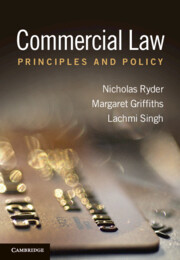Introduction
This chapter considers the issues surrounding the passage of property and
risk in goods and the various rules that dictate when the title to the goods
moves from the seller to the buyer, a factor that becomes crucial when
determining who owns the goods if one of the parties becomes insolvent or
the goods are damaged. Allied to this, the chapter also looks at the related
topics of the delivery of and payment for goods.
Section 2 provides a background to the topic of the passage of property to
goods and the related issue of the passage of risk which dictates who will
have to bear the loss if the goods are damaged or destroyed.
Section 3 looks in detail at the rules relating to the passage of
property to goods and the statutory rules that exist to determine when
the title will pass if the contracting parties have not expressly agreed
the matter in the contract. In particular, it looks at Sale of Goods Act
1979, section 17; the section 18 rules; section 19 on reservation of
title clauses; and undivided shares in a bulk.
Section 4 considers the passage of risk to the goods and the relationship
between the passage of property and the passage of risk.
Section 5 looks at the nemo dat exceptions, i.e., those
situations in which a seller of goods who has no title to them can
nonetheless pass a valid title to those goods to an innocent third party
buyer. In particular, it looks at several of the recognised statutory
nemo dat exceptions, namely, estoppel; mercantile
agent; seller in possession; buyer in possession; Hire-Purchase Act 1964,
s.27; voidable title; sale under court order; and market overt.
